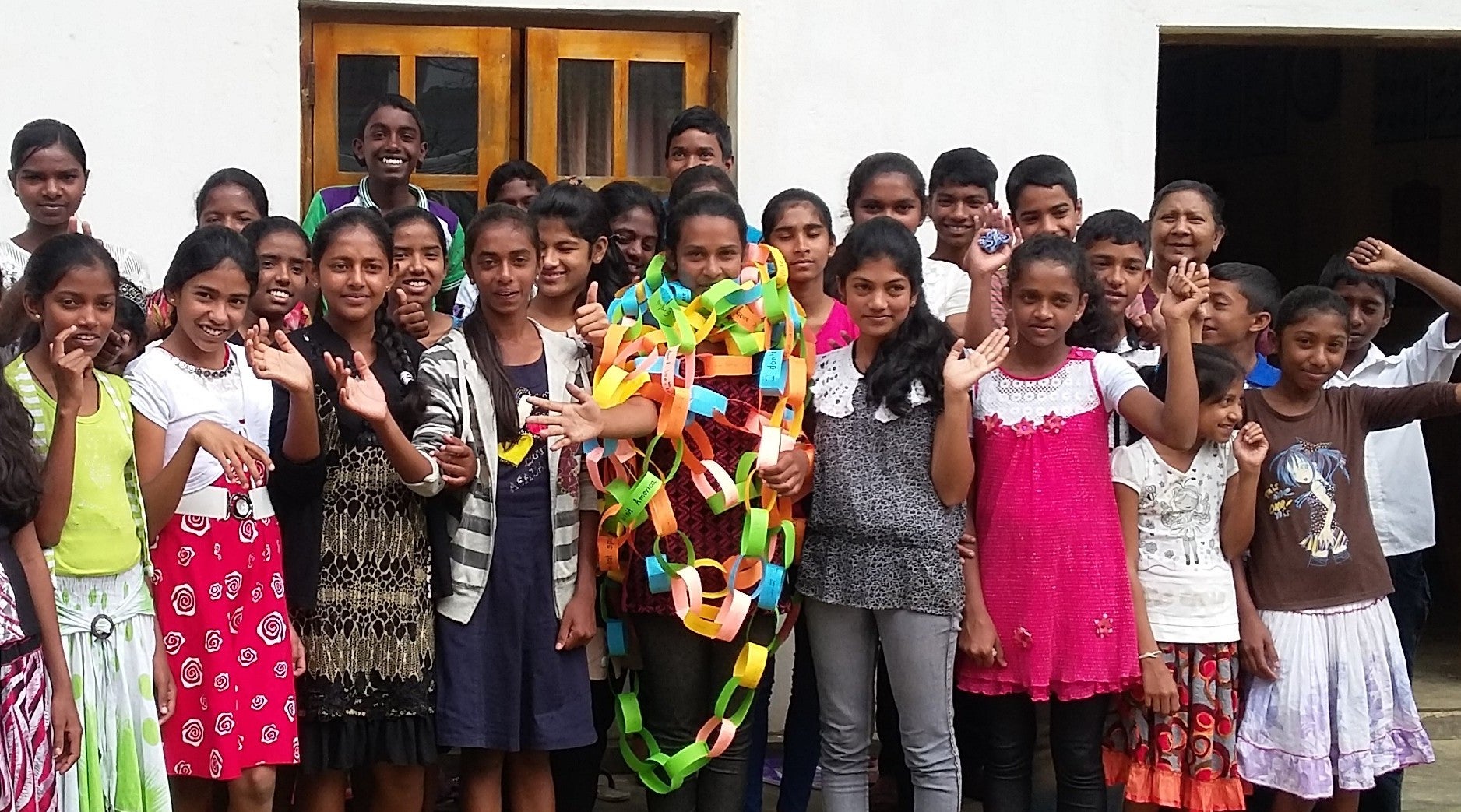English Language Fellow Trinidad Hernandez recently used a 3-day visit to Bandarawela and Belihuloya in Sri Lanka’s hill country to lead an Access English program focused on stereotypes and diversity.
Trinidad’s fellowship in Sri Lanka has immersed him in an incredibly diverse country, which drew him to find a way to approach sensitive topics with his young Access students, who come from backgrounds of strong traditions and beliefs. The program he developed allowed 64 second-year Access students the opportunity to share ideas on the similarities and differences between themselves, a mixed group of Tamil and Sinhalese students, with foreigners that populate the tourist-heavy region, and other Sri Lankans.
To do this, students collected information they “knew” (or had heard) about the major ethnic, racial, and religious groups in their country and worked to decipher what information may not always be true. After a short video on gender stereotypes, the groups shifted their focus to the concept of diversity through “I” and “we” statements to demonstrate that which brings them together, and makes them individually unique. As they shared their statements, students formed the papers into a chain to represent the connection that links them together.
The program allowed these diverse groups of students to better understand themselves and honor the characteristics that make each other’s cultures unique all the while improving their English Language skills. Parents and students alike were appreciative of the lessons Trinidad prepared for the Access students.

